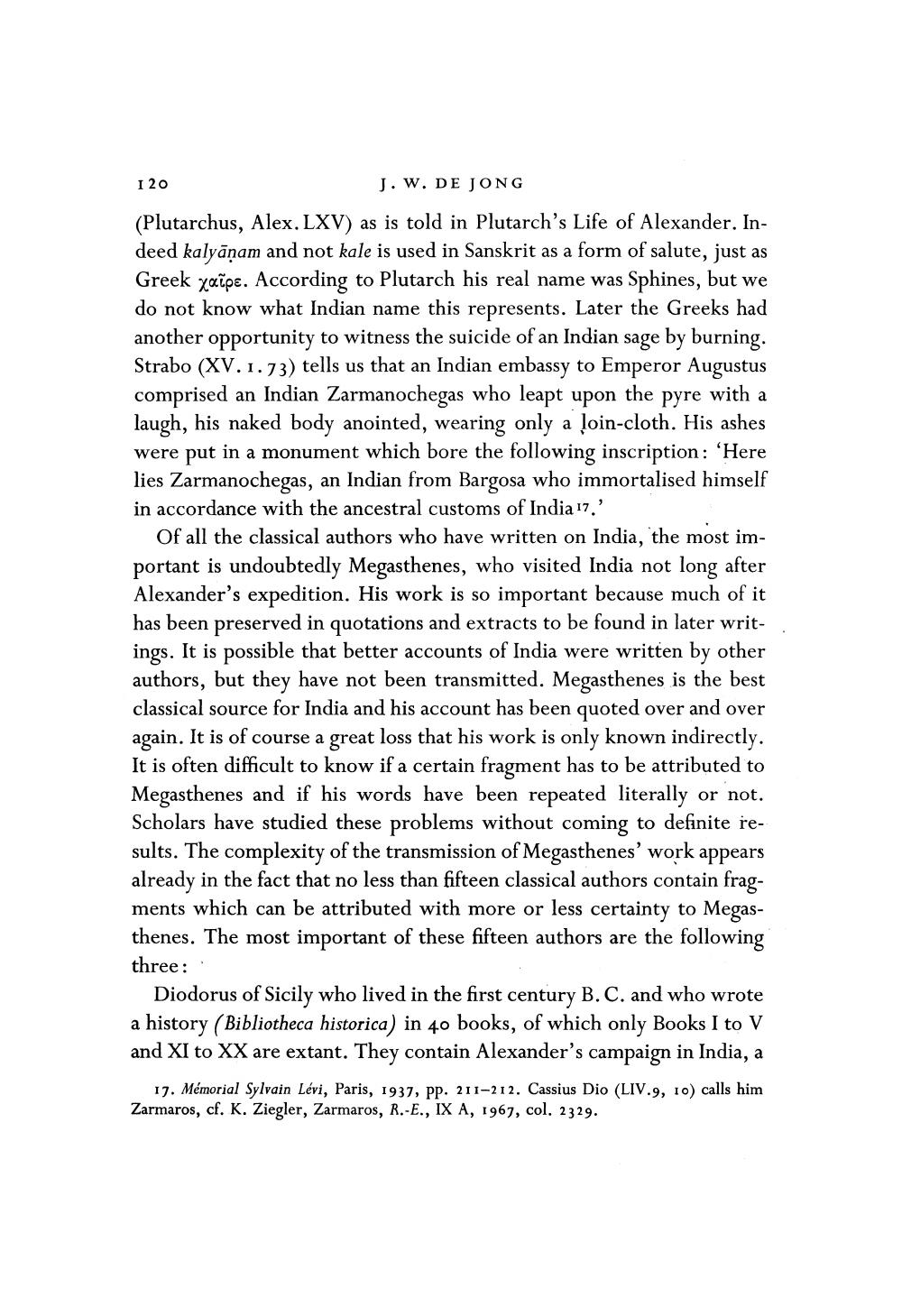Book Title: Discovery Of India By Greeks Author(s): J W De Jong Publisher: J W De Jong View full book textPage 6
________________ I 20 J. W. DE JONG (Plutarchus, Alex. LXV) as is told in Plutarch's Life of Alexander. Indeed kalyānam and not kale is used in Sanskrit as a form of salute, just as Greek yaipe. According to Plutarch his real name was Sphines, but we do not know what Indian name this represents. Later the Greeks had another opportunity to witness the suicide of an Indian sage by burning. Strabo (XV. 1.73) tells us that an Indian embassy to Emperor Augustus comprised an Indian Zarmanochegas who leapt upon the pyre with a laugh, his naked body anointed, wearing only a loin-cloth. His ashes were put in a monument which bore the following inscription : 'Here lies Zarmanochegas, an Indian from Bargosa who immortalised himself in accordance with the ancestral customs of India 17. Of all the classical authors who have written on India, the most important is undoubtedly Megasthenes, who visited India not long after Alexander's expedition. His work is so important because much of it has been preserved in quotations and extracts to be found in later writings. It is possible that better accounts of India were written by other authors, but they have not been transmitted. Megasthenes is the best classical source for India and his account has been quoted over and over again. It is of course a great loss that his work is only known indirectly. It is often difficult to know if a certain fragment has to be attributed to Megasthenes and if his words have been repeated literally or not. Scholars have studied these problems without coming to definite results. The complexity of the transmission of Megasthenes' work appears already in the fact that no less than fifteen classical authors contain fragments which can be attributed with more or less certainty to Megasthenes. The most important of these fifteen authors are the following three: Diodorus of Sicily who lived in the first century B.C. and who wrote a history (Bibliotheca historica) in 40 books, of which only Books I to V and XI to XX are extant. They contain Alexander's campaign in India, a 17. Mémorial Sylvain Lévi, Paris, 1937, pp. 211-212. Cassius Dio (LIV.9, 10) calls him Zarmaros, cf. K. Ziegler, Zarmaros, R.-E., IX A, 1967, col. 2329.Page Navigation
1 ... 4 5 6 7 8 9 10 11 12 13 14 15 16 17 18 19 20 21 22 23 24 25 26 27 28
